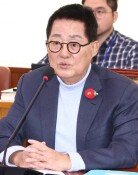Korea needs more realistic approach
Korea needs more realistic approach
Posted October. 19, 2021 07:25,
Updated October. 19, 2021 07:25
The Carbon Neutrality Committee directly under Korea’s presidential office unveiled on Monday a plan for Nationally Determined Contributions (NDC), to reduce greenhouse gas emissions by 40% below 2018. The plan will be discussed at the Cabinet Meeting on Oct 27 and shared at the 26th UN COP26 meeting to be held in November in Britain. The plan, referred to by businesses as “impossible,” will be international commitments.
Adjustments to NDC accelerated since President Moon Jae-in’s public announcement in October last year to achieve carbon neutrality by 2050. In August this year, the National Assembly passed the Basic Act for Carbon Neutrality, which commits NDC reduction to ‘at least 35%’ by 2030. In just two months, the threshold has risen higher. Based on the commitment, South Korea is required to reduce greenhouse gas by 4.17% each year over the next eight years, which is much higher than the European Union at 1.98% and the U.S. at 2.81%. Some experts say that South Korea, for which manufacturing accounts for 26% of its economy, much higher than the E.U. (14%) and the U.S. (11%), may be forced to shut down several steel manufacturing and petrochemical manufacturing facilities to achieve this target.
What makes this more challenging is that these goals need to be achieved by reducing dependency on nuclear energy, which emits almost no carbon, due to the government’s policy to move away from nuclear energy. The policy aims to reduce nuclear energy dependence levels, which was 29% in 2020, to 23.9% by 2030, increasing use of solar and wind energy, which stands at only 6.6%, to 30.2% by 2030. On the contrary, the U.K. is planning to build more nuclear power plants facing challenges in wind power and rising LNG prices, resulting in higher power prices. France recently announced plans to promote small nuclear reactors. Even Japan, which suffered from the Fukushima nuclear disaster, has reversed polity to increase nuclear power generation, which is currently 6%, to more than 20% by 2030.
No matter how important carbon neutrality is it is reckless thinking to achieve targets based on an unrealistic plan. With only seven months remaining for its term, the Moon administration may be criticized later for devising impractical and unfeasible goals and passing it along to the next administration.







